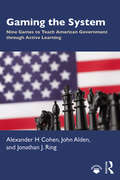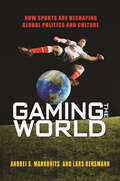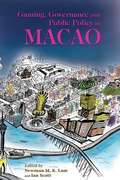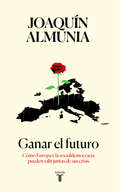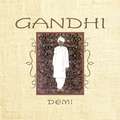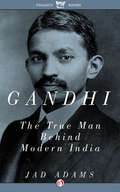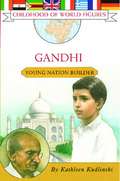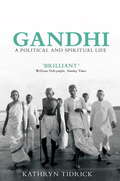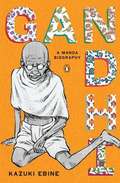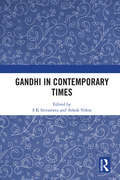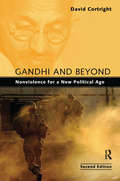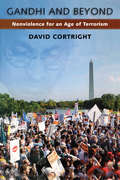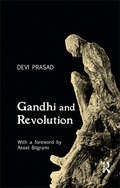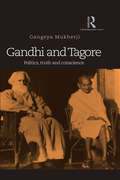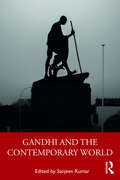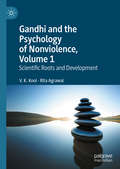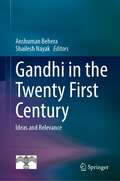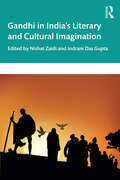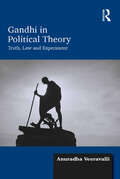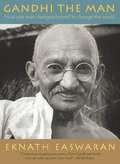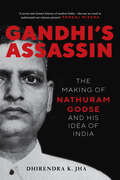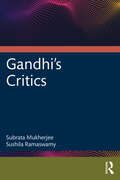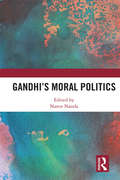- Table View
- List View
Gaming the System: Nine Games to Teach American Government through Active Learning
by John Alden Alexander H Cohen Jonathan J. RingGaming the System takes an active approach to learning about American government, using novel, exciting, and highly instructive games to help students learn politics by living it. These timeless games are the perfect complement to a core textbook in American government—covering key topics like the Constitution, the Supreme Court, Congress, political participation, campaigns and elections, the federal bureaucracy, the social contract, social movements, and public opinion—and can be applied to specific courses at other levels, as well. For Instructors: These nine games are designed to be easily inserted into courses, with all but one fitting into one class session and all flexible enough to adapt or scale as needed. Games are designed so that students will be ready to play after minimal preparation and with little prior knowledge; instructors do not need to design or prepare any additional materials. An extensive instructor-only online resource provides everything needed to accompany each game: summary and discussion of the pedagogical foundations on active learning and games; instructions and advice for managing the game and staging under various logistical circumstances; student handouts and scoresheets, and more. For Students: These games immerse participants in crucial narratives, build content knowledge, and improve critical thinking skills—at the same time providing an entertaining way to learn key lessons about American government. Each chapter contains complete instructions, materials, and discussion questions in a concise and ready-to-use form, in addition to time-saving tools like scorecards and 'cheat sheets.' The games contribute to course understanding, lifelong learning, and meaningful citizenship.
Gaming the World: How Sports Are Reshaping Global Politics and Culture
by Andrei S. Markovits Lars RensmannThe globalizing influence of professional sportsProfessional sports today have truly become a global force, a common language that anyone, regardless of their nationality, can understand. Yet sports also remain distinctly local, with regional teams and the fiercely loyal local fans that follow them. This book examines the twenty-first-century phenomenon of global sports, in which professional teams and their players have become agents of globalization while at the same time fostering deep-seated and antagonistic local allegiances and spawning new forms of cultural conflict and prejudice.Andrei Markovits and Lars Rensmann take readers into the exciting global sports scene, showing how soccer, football, baseball, basketball, and hockey have given rise to a collective identity among millions of predominantly male fans in the United States, Europe, and around the rest of the world. They trace how these global—and globalizing—sports emerged from local pastimes in America, Britain, and Canada over the course of the twentieth century, and how regionalism continues to exert its divisive influence in new and potentially explosive ways. Markovits and Rensmann explore the complex interplay between the global and the local in sports today, demonstrating how sports have opened new avenues for dialogue and shared interest internationally even as they reinforce old antagonisms and create new ones.Gaming the World reveals the pervasive influence of sports on our daily lives, making all of us citizens of an increasingly cosmopolitan world while affirming our local, regional, and national identities.
Gaming, Governance and Public Policy in Macao
by Newman M.K. LamThe small city of Macao--formerly a Portuguese colony, now a Special Administrative Region of China--liberalised its gaming industry in 2002. Since then a score of new casinos have been built and millions of gamblers have flooded in from mainland China. Per capita income has more than doubled in five years and the gaming operators have outstripped their Las Vegas counterparts in revenue and profits. But rapid economic growth has also brought social and political problems. In this structured survey of modern Macao, 15 experts examine the effects of massive foreign investment, the problems of governance, and increasing public policy challenges in a time of rapid change and potential social instability. Newman M. K. Lamis professor of public administration at the University of Macau. Ian Scottis emeritus professor and fellow of the Asia Research Centre at Murdoch University and adjunct professor of public and social administration at the City University of Hong Kong.
Ganar el futuro: Cómo Europa y la socialdemocracia pueden salir juntas de sus crisis
by Joaquín AlmuniaUn discurso sólido y optimista sobre Europa. Más necesario que nunca. <P><P>¿Es sensato seguir mirando con optimismo el futuro de Europa? ¿Cómo podemos asegurar el crecimiento y el empleo sin desmantelar el estado de bienestar? ¿Es posible reforzar la legitimidad democrática de la Unión Europea? <P>Este libro, necesario y urgente, da respuesta a estas cuestiones, que sin duda están afectando a la confianza de los ciudadanos en las instituciones comunitarias. <P> «Si el silencio es la respuesta, se estará ayudando a crear el caldo de cultivo del que se alimentan los populismos de distinto signo.» <P>Joaquín Almunia, que pertenece a una generación de españoles para quienes la integración europea es una referencia imprescindible, reflexiona sobre las dificultades a las que se enfrentan hoy esta y la socialdemocracia, advierte de la necesidad de recuperar la sintonía con los ciudadanos, y defiende de manera sólida y persuasiva que la Unión Europea, junto con la socialdemocracia, sigue siendo la mejor opción. <P>Ganar el futuro ofrece una batería de argumentos frescos y poderosos a favor de llevar la integración a niveles no alcanzados hasta ahora, y alerta sobre las consecuencias nefastas de desandar el camino. «El modelo de sociedad europea, ejemplo de libertad, justicia y solidaridad, no se puede entender sin los socialdemócratas. Ha llegado el momento de renovarlo y adaptarlo a los cambios que caracterizan a las sociedades de este siglo.» La crítica ha dicho...
Gandhi
by DemiM.k.Gandhi known by his followers as Mahatama--or great soul--was born in India in 1869 and grew up to become one of the most influential and well-respected political and social leaders the world has ever known. An adamant idealist and a courageous thinker, Gandhi identified himself with the struggles of the common people. He won independence for India and is called "Father of India". Nelson Mandela and Martin Luther King were followers of Gandhi's teachings.
Gandhi
by Jad Adams"Provocative. Adams strips away Gandhi's saintly aura and explores the duality . . . of India's most famous leader." --Financial Times Jad Adams traces the course of Gandhi's multi-faceted life, and the development of his religious, political, and social thinking over seven tumultuous decades: from his comfortable upbringing in a princely state in Gujarat; his early civil rights campaigns; his leadership through civil disobedience in the 1920s and 1930s that made him a world icon; and finally to his assassination by a Hindu extremist in 1948, only months after the birth of independent India. An elegant and masterly account of one of the seminal figures of twentieth-century history, Adams presents for the first time the true story behind the man whose life may truly be said to have changed the world.
Gandhi
by Kathleen KudlinskiThe man we remember simply as Gandhi was born Mohandas Gandhi in India in 1869. From an early age he was made keenly aware of the rigid Hindu caste system of his country, and was heavily influenced by his mother's ability to fast as a way to control her urges. Mohandas was married at the age of thirteen and continued his education, though he struggled as a student. He also struggled to find himself and to keep his moral center intact. At college in London, and then later at work in South Africa and India, Gandhi was appalled at the abject poverty he discovered and by the widespread denial of civil liberties and political rights he encountered. He ultimately dedicated his life to the struggle for fundamental human rights for all Indians. Read all about the fascinating early years and eventual accomplishments of this inspiring leader.
Gandhi
by Kathryn TidrickThroughout his long and turbulent career as a political leader, first in South Africa and then in India, Gandhi sought to fulfil his religious aspirations through politics and to reconcile politics with personal religious conviction. But Gandhi's religion was wildly divergent from anything to have taken root in his native India. Foremost among his private tenets was the belief that he was a world saviour, long prophesied and potentially divine. Penetrating and provocative, Kathryn Tidrick's book draws on neglected material to explore the paradoxes within Gandhi's life and personality. She reveals a man whose spiritual ideas originated not in India, but in the drawing rooms of late-Victorian England, and which included some very eccentric and damaging notions about sex. The resulting portrait is complex, convincing and, to anyone interested in the legacy of colonialism, more enlightening than any previously published. The Gandhi revealed here is not the secular saint of popular renown, but a difficult and self-obsessed man driven by a messianic sense of personal destiny. From the Trade Paperback edition.
Gandhi
by Kazuki EbineThe life of a true twentieth-century hero told in a vibrant graphic novel format. Through his quietly powerful leadership and influential use of nonviolent resistance in India's struggle against the British Raj, Mahatma Gandhi became one of the most revered figures of the modern era. While history has recorded Gandhi's words and deeds, the man himself has been eclipsed by maxims of virtuosity that seem to have little resonance in our everyday lives. In Gandhi, the third volume in our exciting new manga biography series, created in conjunction with Emotional Content, Kazuki Ebine combines a gripping narrative with stunning illustrations to share Gandhi's inspiring and deeply human story with a whole new generation of readers. Developed in conjunction with Emotional Content. .
Gandhi Aur Ambedkar: गांधी और आंबेडकर
by Ganesh Mantriगांधी और आंबेडकर पर अनेक छोटे-बडे़ अध्ययन हुए हैं; किंतु अस्पृश्यों की सामाजिक स्थिति में परिवर्तन की दृष्टि से उनके विचारों और कार्यों का अध्ययन आंशिक रूप से ही हुआ है। प्रस्तुत अध्ययन का उद्देश्य अस्पृश्यता के परिप्रेक्ष्य में गांधी और आंबेडकर का समग्र रूप से तुलनात्मक विवेचन करना है। इस पुस्तक में इन दोनों महान् व्यक्तियों के जीवन-संदर्भों; विचारधाराओं; स्वतंत्रता-संग्राम के समय की सामाजिक-राजनीतिक प्रक्रियाओं का विश्लेषण करते हुए; भारत की वर्तमान परिस्थितियों में दोनों के विचार और कर्म की भूमिका तथा दलितों की वर्तमान स्थिति में इनकी प्रासंगिकता की खोज की गई है।
Gandhi In Contemporary Times
by S K Srivastava Ashok VohraThis volume brings together essays which discuss and contextualise Gandhi’s ideas on pluralism, religious identity, non-violence, satyagraha, and modernity. It interrogates the epistemic foundations of Gandhian thinking and weltanschauung, identifies diverse strands within his arguments, and gives it new meaning in contemporary society. This book focuses on Gandhi’s engagements with religious, political and social conflicts, his reflections on faith and modernity, and his argumentative dialogues with Mohammad Ali Jinnah and B R Ambedkar. It provides critical insights into Gandhi’s philosophy and suggests ways of engaging with his ethical and moral ideas in contemporary intellectual and political discourse. Comparing and contrasting Gandhian thought and strategies with contemporary issues and conceptions of religious freedom, conflict resolution, and liberalism; the volume reformulates and reconstitutes his intellectual and political legacy. This book points to new and possible future directions of research on Gandhian concepts and will be useful for scholars in the fields of political science, Gandhian studies, sociology and philosophy.
Gandhi and Beyond: Nonviolence for a New Political Age
by David CortrightIs there room for nonviolence in a time of conflict and mass violence exacerbated by economic crisis? Drawing on the legend and lessons of Gandhi, Cortright traces the history of nonviolent social activism through the twentieth century to the civil rights movement, the Vietnam era, and up to the wars in Iraq, Afghanistan, and Gaza. Gandhi and Beyond offers a critical evaluation and refinement of Gandhi's message, laying the foundation for a renewed and deepened dedication to nonviolence as the universal path to social progress. In the second edition of this popular book, a new prologue and concluding chapter situate the message of nonviolence in recent events and document the effectiveness of nonviolent methods of political change. Cortright's poignant "Letter to a Palestinian Student" points toward a radical new strategy for achieving justice and peace in the Middle East. This book offers pathways of hope not only for a new American presidential administration but for the world.
Gandhi and Beyond: Nonviolence for an Age of Terrorism
by David Cortright"David Cortright is a life-long activist and respected scholar. In Gandhi and Beyond, he convincingly shows the power of nonviolence as a philosophy of life, not just a method of social action. His practical analysis of Gandhi, Martin Luther King, Dorothy Day, Cesar Chavez, and others brings new insights and inspiration to those of us attempting to live that philosophy, and to those, especially a new generation, who are seeking a better way to respond to their world. I commend this book to all who are seeking an alternative to violence." Jim Wallis, author of God's Politics and editor of Sojourners Is there room for nonviolence in an age of terrorism? Drawing on the legend and lessons of Gandhi, Cortright traces the history of nonviolent social activism through the early twentieth century to the civil rights movement, the Vietnam era, and up to the present war in Iraq. Gandhi and Beyond offers a critical evaluation and refinement of Gandhi's message, laying the foundation for a renewed and deepened dedication to nonviolence as the universal path to social progress and antidote to terrorism.
Gandhi and Marx
by K. G. MashruwalaWhat can be a more fascinating study to us in the present age than that of a comparison between the ideologies of Gandhi, the great soul (mahatma), and Marx, the great thinker (mahamuni)? If the last hundred years or so of the social life of humanity were boiled away, the residue will most likely be these two great names. Lenin is ingested in Marx. And the shadow of Tolstoy spreads over Gandhi. The two ideologies stand face to face, each bent on swallowing up the other. — VINOBA
Gandhi and Revolution
by Devi PrasadThis volume is a collection of Devi Prasad’s essays on Gandhi, social justice and social change. The different essays address themes ranging from Gandhi’s ideals of satyagraha and ahimsa, civil disobedience and non-violence, to the Gandhian approach to education as founded in making and crafting as well as participation in the political and social movements of our times. They also engage the revolutionary potential of Gandhi’s thought, drawing parallels between Lenin and Gandhi and analysing the historical significance of Gandhi’s anti-imperialist yet non-violent political philosophy. In sum, the volume dwells on the continuing, critical relevance of Gandhi in our times. It will be of interest to those in education, political science, peace and conflict studies, history and philosophy, as well as to the general reader interested in Gandhian thought.
Gandhi and Tagore: Politics, truth and conscience
by Gangeya MukherjiThis book brings together the political thought of Gandhi and Tagore to examine the relationship between politics, truth and conscience. It explores truth and conscience as viable public virtues with regard to two exemplars of ethical politics, addressing in turn the concerns of an evolving modern Indian political community. <P><P>The comprehensive and textually argued discussion frames the subject of the validity of ethical politics in inhospitable contexts such as the fanatically despotic state and energised nationalism. The book studies in nuanced detail Tagore’s opposition to political violence in colonial Bengal, the scope of non-violence and satyagraha as recommended by Gandhi to Jews in Nazi Germany, his response to the complexity of protest against the Jallianwala Bagh massacre, and the differently constituted nationalism of Gandhi and Tagore. It presents their famous debate in a new light, embedded within the dynamics of cultural identification, political praxis and the capacity of a community to imbibe the principles of ethical politics. Comprehensive and perceptive in analysis, this book will be a valuable addition for scholars and researchers of political science with specialisation in Indian political thought, philosophy and history. <P><P>Gangeya Mukherji is Reader in English at Mahamati Prannath Mahavidyalaya, Mau-Chitrakoot, Uttar Pradesh, India.
Gandhi and the Contemporary World
by Sanjeev KumarThis book develops a critical understanding of Mahatma Gandhi’s philosophy and practice in the context of contemporary challenges and engages with some of his key work and ideas. It highlights the relevance of Gandhi’s legacy in the quest towards peace-building, equity and global justice. The volume examines diverse facets of Gandhi’s holistic view of human life – social, economic and political – for the creation of a just society. Bringing together expert analyses and reflections, the chapters here emphasise the philosophical and practical urgency of Gandhi's thought and action. They explore the significance of his concepts of truth and nonviolence to address moral, spiritual and ethical issues, growing intolerance, conflict and violence, poverty and hunger, and environmental crisis for the present world. The volume serves as a platform for constructive dialogue for academics, researchers, policymakers and students to re-imagine Gandhi and his moral and political principles. It will be of great interest to those in philosophy, political studies, Gandhi studies, history, cultural studies, peace studies and sociology.
Gandhi and the Psychology of Nonviolence, Volume 1: Scientific Roots and Development
by Rita Agrawal V. K. KoolThe first of two volumes, this book examines Gandhi’s contribution to an understanding of the scientific and evolutionary basis of the psychology of nonviolence, through the lens of contemporary researches on human cognition, empathy, morality and self-control.While, psychological science has focused on those participants that delivered electric shocks in Professor Stanley Milgram’s famous experiments, these books begin from the premise that we have neglected to fully explore why the other participants walked away. Building on emergent research in the psychology of self control and wisdom, the authors illustrate what Gandhi’s life and work offers to our understanding of these subjects who disobeyed and defied Milgram.The authors analyze Gandhi’s actions and philosophy, as well as original interviews with his contemporaries, to elaborate a modern scientific psychology of nonviolence from the principles he enunciated and which were followed so successfully in his Satyagrahas. Gandhi, they argue, was a practical psychologist from whom we can derive a science of nonviolence which, as Volume 2 will illustrate, can be applied to almost every subfield of psychology, but particularly to those addressing the most urgent issues of the 21st century. This book is the result of four decades of collaborative work between the authors. It marks a unique contribution to studies of both Gandhi and the current trends in psychological research that will appeal in particular to scholars of social change, peace studies and peace psychology, and, serve as an exemplar in teaching one of modern psychology’s hitherto neglected perspectives.
Gandhi in the Twenty First Century: Ideas and Relevance
by Shailesh Nayak Anshuman BeheraThis book engages a multidisciplinary approach to understand Gandhi in addressing specific contemporary societal issues. The issues highlighted in the book through thirteen distinct, yet interrelated, themes offer solutions to the societal challenges through the prism of Gandhian thought process. This edited book explores how ideas Gandhi expressed over a century ago can be applied today to issues from the UN's Sustainable Development Goals to peaceful resolution of conflicts. In particular, it looks at the contemporary societies' critical issues and offers solutions through the prism of Gandhian ideas. Written in an accessible style, this book reintroduces Gandhi to today's audiences in relevant terms.
Gandhi in India’s Literary and Cultural Imagination
by Nishat Zaidi Indrani Das GuptaThis book engages with the socio-cultural imaginings of Gandhi in literature, history, visual and popular culture. It explores multiple iterations of his ideas, myths and philosophies, which have inspired the work of filmmakers, playwrights, cartoonists and artists for generations. Gandhi’s politics of non-violent resistance and satyagraha inspired various political leaders, activists and movements and has been a subject of rigorous scholarly enquiry and theoretical debates across the globe. Using diverse resources like novels, autobiographies, non-fictional writings, comic books, memes, cartoons and cinema, this book traces the pervasiveness of the idea of Gandhi which has been both idolized and lampooned. It explores his political ideas on themes such as modernity and secularism, environmentalism, abstinence, self-sacrifice and political freedom along with their diverse interpretations, caricatures, criticisms and appropriations to arrive at an understanding of history, culture and society. With contributions from scholars with diverse research interests, this book will be an essential read for students and researchers of political philosophy, cultural studies, literature, Gandhi and peace studies, political science and sociology.
Gandhi in Political Theory: Truth, Law and Experiment
by Anuradha VeeravalliCan Gandhi be considered a systematic thinker? While the significance of Gandhi’s thought and life to our times is undeniable it is widely assumed that he did not serve any discipline and cannot be considered a systematic thinker. Despite an overwhelming body of scholarship and literature on his life and thought the presuppositions of Gandhi’s experiments, the systematic nature of his intervention in modern political theory and his method have not previously received sustained attention. Addressing this lacuna, the book contends that Gandhi’s critique of modern civilization, the presuppositions of post-Enlightenment political theory and their epistemological and metaphysical foundations is both comprehensive and systematic. Gandhi’s experiments with truth in the political arena during the Indian Independence movement are studied from the point of view of his conscious engagement with method and theory rather than merely as a personal creed, spiritual position or moral commitment. The author shows how Gandhi’s experiments are illustrative of his theoretical position, and how they form the basis of his opposition to the foundations of modern western political theory and the presuppositions of the modern nation state besides envisioning the foundations of an alternative modernity for India, and by its example, for the world.
Gandhi the Man
by Eknath EaswaranThis is the moving story of a nonviolent hero, illustrated with more than 70 photographs, and told by a highly respected author who grew up in Gandhi's India.Gandhi's life continues to inspire and baffle readers today. How did an unsuccessful young lawyer become the Mahatma, the "great soul" who led 400 million Indians in their struggle for independence from the British Empire? What is nonviolence, and how does it work?Easwaran answers these questions and gives a vivid account of the turning points and choices in Gandhi's life that made him an icon of nonviolence. Easwaran witnessed at firsthand how Gandhi inspired ordinary people to turn fear into fearlessness, and anger into love. He visited Gandhi in his ashram to find out more about this human alchemy, and during the prayer meeting watched the Mahatma absorbed in meditation on the Bhagavad Gita, the scripture that was the wellspring of his spiritual power.Quotations highlight Gandhi's teachings in his own words, and sidebar notes and a chronology, new to this updated edition, provide historical context.This book conveys the spirit and soul of Gandhi - the only way he can be truly understood.
Gandhi's Assassin: The Making of Nathuram Godse and His Idea of India
by DHIRENDRA JHAThe life of Nathuram Godse, the man who shot GandhiDhirendra Jha's deeply researched history places Nathuram Godse's life as the juncture of the dangerous fault lines in contemporary India: the quest for independence and the rise of Hindu nationalism.On a wintry Delhi evening on 30 January 1948, Nathuram Godse shot Gandhi at point-blank range, forever silencing the man who had delivered independence to his nation. Godse&’s journey to this moment of international notoriety from small towns in western India is, by turns, both riveting and wrenching. Drawing from previously unpublished archival material, Jha challenges the standard account of Gandhi&’s assassination, and offers a stunning view on the making of independent India.Born to Brahmin parents, Godse started off as a child mystic. However, success eluded him. The caste system placed him at the top of society but the turbulent times meant that he soon became a disaffected youth, desperately seeking a position in the infant nation.In such confusing times, Godse was one of hundreds, and later thousands, of young Indian men to be steered into the sheltering fold of early Hindutva, Indian nationalism. His association with early formations of the RSS and far-right thinkers such as Sarvakar proves that he was not working alone. Today he is considered to be a patriotic hero by many for his act of bravery, despite being found guilty in court and executed in 1949.
Gandhi's Critics
by Subrata Mukherjee Sushila RamaswamyThe book is a definitive account of Gandhi’s major critics. It presents a detailed and comprehensive account of each critic, assesses their criticisms of Gandhi and underlines the significance and achievements of Gandhi against the backdrop of the critiques – from contemporaries like the Nehrus (Motilal and Jawaharlal), Tagore, Churchill, Jinnah, Periyar, Savarkar, Ambedkar, Subhas Bose, the Marxists (from the mid-1920s until 1947 and post-independence), P.C. Ray, Visvesvaraya and Saha, to later critics like Orwell, Alinsky, Mandela, King and critics from Africa.The volume will be of immense importance to scholars and students of undergraduate and postgraduate courses in political science and South Asian studies. It will also be of interest to general readers interested in history and politics.
Gandhi's Moral Politics
by Naren NandaThis volume explores the scope and limits of Mahatma Gandhi's moral politics and its implications for Indian and other freedom movements. It presents a set of enlightening essays based on lectures delivered in memory of the eminent historian B. R. Nanda along with a new introductory essay. With contributions by leading historians and Gandhi scholars, the book provides new perspectives on the limits of Gandhi’s moral reasoning, his role in the choice of destination by Indian Muslim refugees, his waning influence over political events, and his predicament amid the violence and turmoil in the years immediately preceding partition. The work brings together wide-ranging insights on Gandhi and revisits his religious views, which were the foundation of his morality in politics; his experience of civil disobedience and its nature, deployment and limits; Satyagraha and non-violence; and his struggle for civil rights. The volume also examines how Gandhi’s South African phase contributed to his later ideas on private property and self-sacrifice. This book will be of immense interest to researchers and scholars of modern Indian history, Gandhi studies, political science, peace and conflict studies, South Asian studies; to researchers and scholars of media and journalism; and to the informed general reader.
